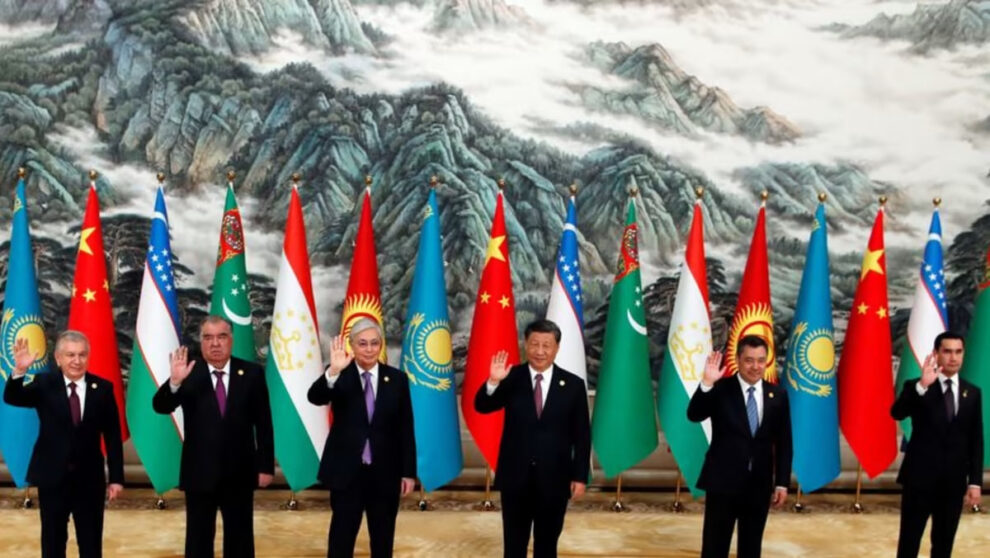Uzbekistan is supporting China’s vision for Taiwan’s future. The government news outlet Dunyo on September 4 published a brief Uzbek Foreign Ministry statement that endorses Beijing’s “One China” policy and expresses “hope for a speedy reduction of tension.”
China was Uzbekistan’s top foreign investor during the first half of 2023 in terms of the volume of foreign investment and loans disbursed, according to the Uzbek State Agency for Statistics. China’s share of foreign investment stood at 20.5 percent of the overall total of $4.9 billion-worth of foreign investment that flowed into Uzbekistan during the period. Russia accounted for an 18.8 percent share, while Turkey was Uzbekistan’s third leading source of foreign investment, with a 6.2 percent share.
Beijing has opened two new freight rail routes to Uzbekistan as part of an effort to expand Europe-bound export route options. One of the new routes, launched on August 29, connects Zhangjiakou, an industrial hub in HebeiProvince about 100 miles northeast of Beijing, with Tashkent, via the Khorgos land port in China’s westernmost XinjiangProvince. The other route, inaugurated on August 30, connects Tashkent and Liuzhou, a southern city and auto manufacturing center. “The successful launch of the Liuzhou-Tashkent train marks an increase in the number of routes from Guangxi to Europe and Central Asia to six,” according to a report published by the People’s Daily.
Kazakhstan
Kazakhstan’s Minister of Science and Higher Education, Sayasat Nurbek, has revealed that “about 250 bilateral agreements” are currently operating between educational institutions in China and Kazakhstan. “Now, about 3,500 Kazakhstanis study at PRC universities, and over 1,000 Chinese receive education at Kazakhstani universities,” Nurbek told attendees at a conference in Astana on August 31. He also announced that a Luban Workshop will open at East Kazakhstan TechnicalUniversity. Under the program, Chinese experts will provide vocational training on the assembly of electric vehicles. China operates dozens of Luban workshops around the world, most of them affiliated with local educational institutions. The soft-power initiative provides training for workers who can then find jobs in Chinese-sponsored investment projects.
Lin Wu, the Chinese Communist Party boss of Shandong Province, one of China’s main economic hubs, led a 100-strong Chinese business delegation on an early September visit to Kazakhstan, the Kazakh government press service reported. During the trip, Lin met a variety of officials including Prime Minister Alikhan Smailov and Almaty Mayor Yerbolat Dossayev; discussions focused on investment opportunities. Kazakhstan’s Ministry of Agriculture announced that the visit yielded an agreement under which the Central Asian nation will supply China with 200,000 tons of grain. An additional agreement covered cooperation between the Kazakh AgrotechnicalResearch University and the Shandong Academy of Agricultural Sciences on joint research and development initiatives. The Agricultural Ministry also said trade turnover in agricultural products during the first half of 2023 amounted to over $578 million, a significant jump over the same period in 2022, but still lagging behind 2021 totals.
Kazakhstan and China are deepening cooperation on a venture to mine tungsten, an element used in a variety of items from light bulbs to armor-piercing shells. According to Kazakh Invest, a Chinese firm, Jiaxin International Resources Investment Ltd, will be a partner in the project, which will require upwards of $450 million in investment. The venture will have a mining capacity of 3.3 million tons of ore per year and is projected to employ upwards of 1,000 workers. The deal was facilitated via the involvement of the China Overseas Development Association.
Source: Oil Price















